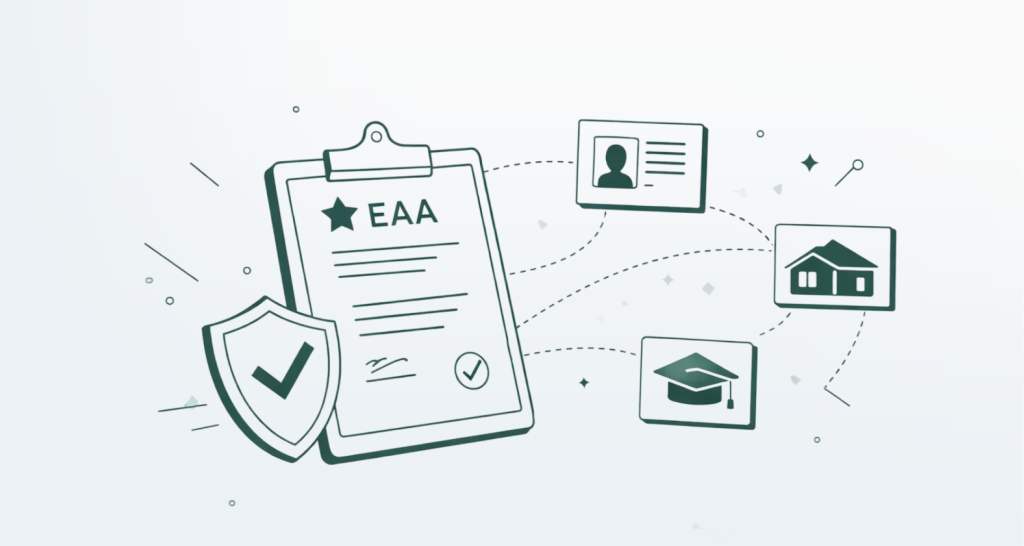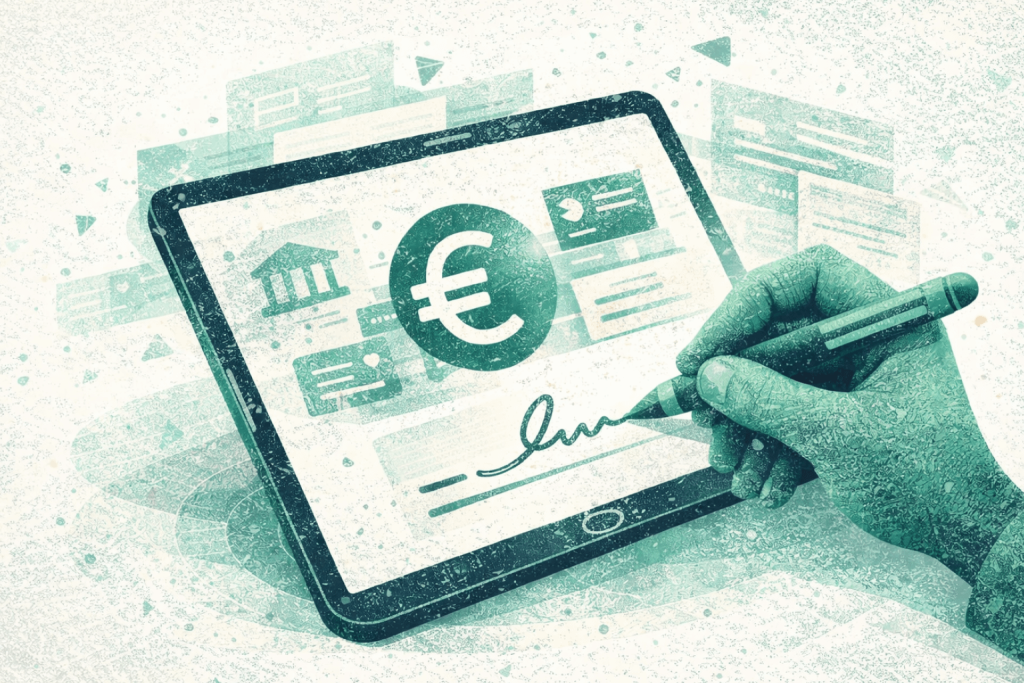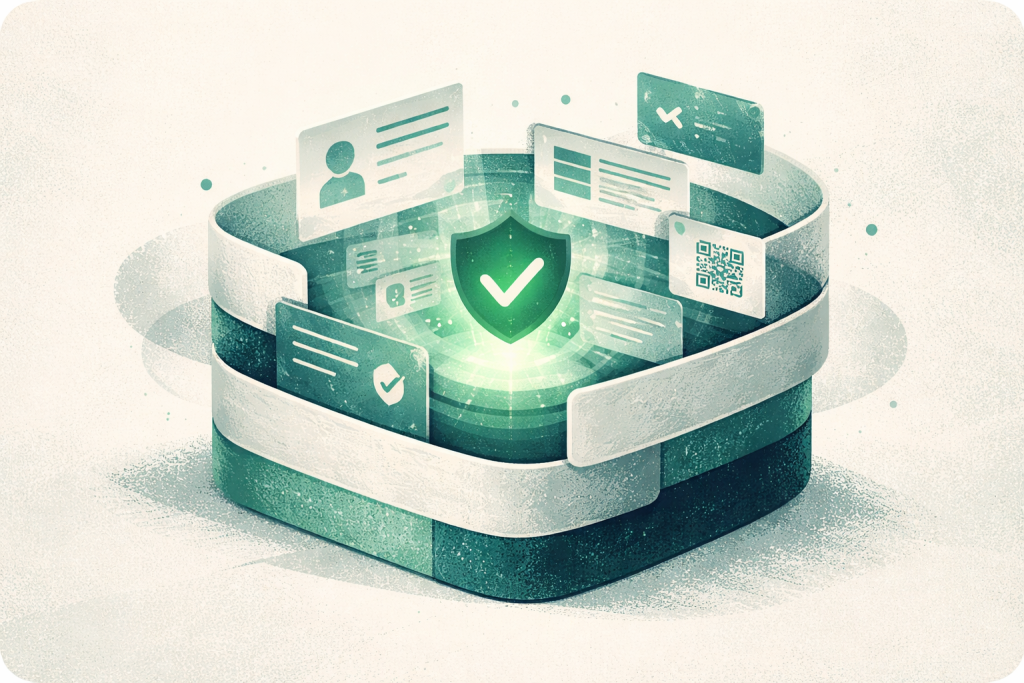
At a glance
To note:
- Documents signed exclusively with proof sign are always valid, in any order
- Signatures can NOT be combined arbitrarily (see table)
- If all work steps are handled digitally, there is no media disruption
- Using a digital signature tool will help drive digitization in your business network and establish a compliant process
- At sproof sign, any person can be invited to sign and sign for free, only the person who invites to sign pays
- Since the digital signature is embedded in the PDF document, the validity of the digital signature is platform-independent and can be checked at any verification body, independent of sproof
- If a digitally signed document is printed, it loses its legal validity and verifiability
Interaction of the signatures
There are different types of digital signatures that are used in practice and there is the well-known manual signature. However, if this is to be applied to a digital document, it can be a bit more complex.
First, the digital document must be printed out so that it can be signed by hand at all. Once the analogue signature has been made, the document must be scanned so that it can be sent in digital form. This is referred to as a media break (digital – analogue – digital).
Image of the signature – simple electronic signature
However, if you sign digitally, a media break can be avoided and time can be saved. For example, if you insert an image of the signature (with the help of an image editing tool) into the document, it is called a simple electronic signature (EES).
Digital signature is invisible
To be able to sign with advanced (FES) or qualified signatures (QES), you need a tool like sproof sign. After placing the signature card on the document, the PDF is provided with a digital signature.
Digital signatures cannot be printed
Digital signatures are created purely digitally. The information required to verify a digital signature is NOT visually attached to the document (theoretically, it is even possible to digitally sign “invisibly”) and is lost when printed and rescanned. A digital signature is also only created for a specific version of a document. Once the document is edited, the digital signature is invalid. However, it is possible to apply several digital signatures to a PDF document. This is also supported by sproof sign. sproof sign uses only digital signatures and offers the choice to choose between an advanced and a qualified signature.
Combinations of signatures: EES – FES – QES
The following table shows a few examples of possible combinations of the different digital signatures, such as EES, FES or QES. The signatures are applied sequentially to the document.

Digital signatures that are inserted one after the other in a document are valid, as they are always connected to the document and the sequence is also saved. As soon as a digitally signed document is subsequently edited, e.g. an image with a signature is inserted, a previously created digital signature, e.g. mobile phone signature, loses its validity. Even if a document that has already been signed with a mobile phone signature is printed out and signed by hand, the digital signature automatically loses its validity.

Handwritten signature as an image
The process for a manual signature of a PDF document: Print – Sign by hand – Scan – Forward

Simple Electronic Signature (EES)
Open a PDF with an image editing tool and insert a signature as an image or sign it with a pen on a tablet.

Qualified (QES) or Advanced Signature (FES)
With software for digital signatures, for example with a tool such as sproof sign, a PDF can be digitally signed.

Defective digital signatures
If the digital signature is defective, then the document can no longer be verified!




